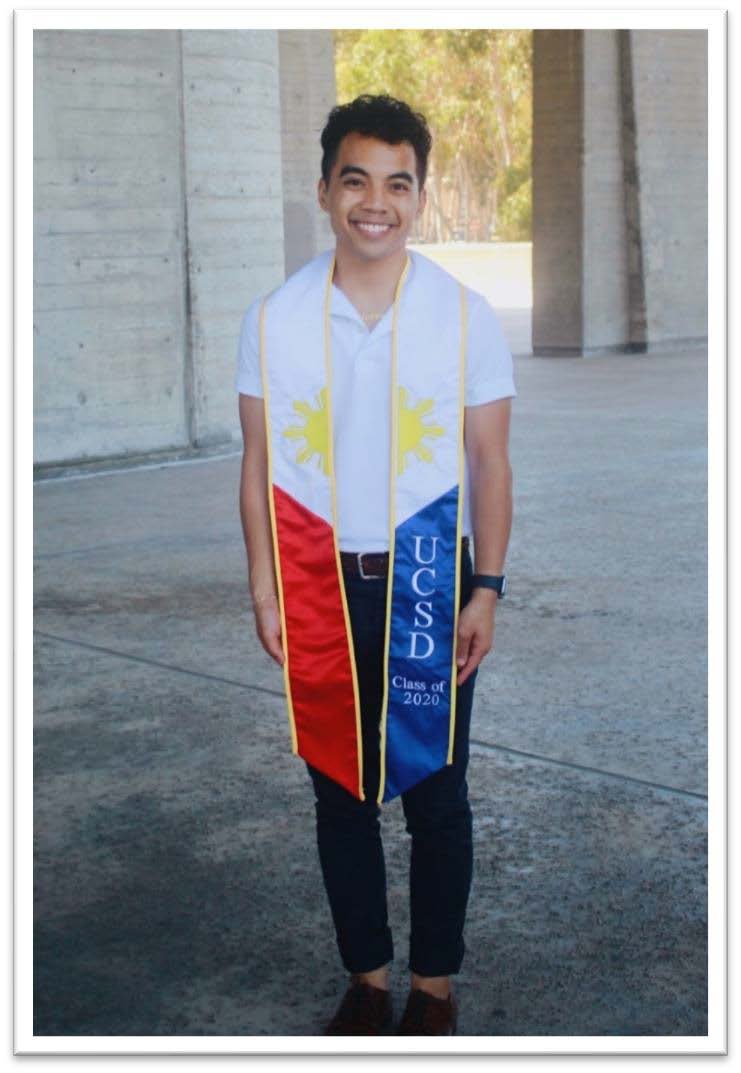Lee Diego Lacasa

Hi, I'm Lee Diego!
I'm a senior from Eleanor Roosevelt College. I double majored in Biochemistry and Cell Biology & Cognitive and Behavioral Neuroscience.
UR Program Participation
Genentech Scholars Program
Research/Area of Focus
I am studying under Dr. Taylor Doherty's Lab. Our work examines Group 2 Innate Lymphoid Cells (ILC2s) and their contributing roles towards the progression of allergic airway diseases and asthma pathology through identifying novel mechanisms of action.
Why did you decide to get involved in undergraduate research?
As a student who began his undergraduate career at a local community college, research opportunities were scarce for me until coming to UC San Diego. Immediately realizing this huge discrepancy in opportunities upon transferring, I reasoned that I would take advantage of the vast array of research options to further my growth beyond the scope of the classroom. It was truly during my time in research that I felt reaffirmed in my passion for science, challenged beyond my believed potential, and felt like I was actively contributing to global purposes and findings far greater than myself.
How did you get your start?
I began sifting through opportunities on handshake for any lab or research opening for undergraduates on campus. While finding a plethora of options, I wanted to find the best fit lab that would support my needs as a growing scientist. I applied to countless lab openings, interviewed at a handful, and found my place in my current lab.
How have you been affected by COVID?
Adaptation, patience, and resilience became my answers for all of the obstacles this pandemic has posed for me. In the research context, this pandemic halted my entire shadowing and skillset training I would have gained over the past few months in-person. Since then, I've been able to come back to the lab but am now faced with the hardship of training as a growing scientist without the typical guidance a student would receive from outgoing lab members. Despite these unprecedented hardships, I'm beyond grateful to still have my core lab staff to depend on and learn together with as we safely ramp back up.
How are you being innovative in order to continue doing research?
Given the unforeseen pandemic and the associated obstacles, my lab has been sustaining an environment that highly promotes collaboration, efficiency, and opportunities to learn and engage. The lab staff and I have been finding ways to increase efficiencies, such as producing electronic files of calculations and protocols, including small notes addressing "why are we doing/adding this?" throughout the protocol to promote clarity as we work through processes.
I've also had to become a regular presenter over zoom to showcase data or generally speak during journal club. The use of Zoom for every social encounter, from classes to organization meetings, has allowed me to understand better how to best present over Zoom and make presentations more digestible over virtual meetings. This has made me a better science communicator, I feel, and is one of the goals and skills I wanted to get better practice in!
What is keeping you hopeful right now?
My greatest concern since the COVID-19 pandemic struck has been public health. Yet I have so much faith rooted in science, public health, and advocacy, that I know aside from the great minds and hard work being put forth into creating vaccines and answers to the pandemic, seeing the passion and creativity of communities and organizations advocating to keep each other safe and sheltered during these times has ultimately kept me hopeful.
What are your future plans?
I begin graduate school through the Biology BS/MS program in a few weeks and am planning to defend my research thesis in Fall 2021. I look forward to working in clinical research after earning my graduate degree before applying to medical schools. Ultimately, I aspire to become an internist to engage and invest in public health projects, and one day collaboratively open up a network of community clinics set in lower-income communities
Apply to a UR Program!
Are you interested in undergraduate research and/or scholarship opportunities like this one? Contact UR to learn more.
Contact Us
